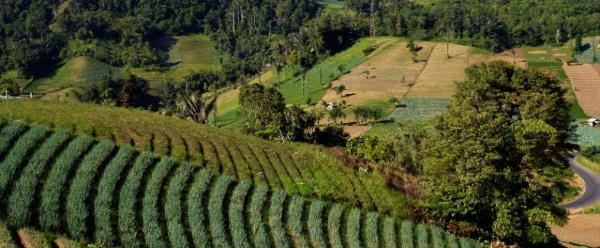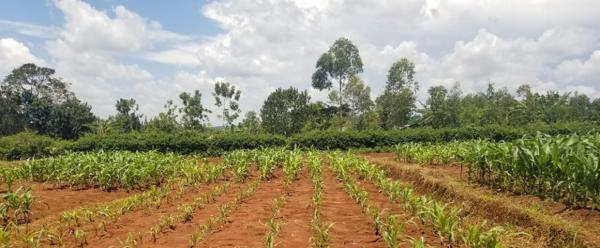Just out 25 February 2026
- Home
- Press area
- Press releases
- Participatory approaches aimed at preserving the planet's resources
A new guide to participatory approaches aimed at preserving the planet's resources

© Mo - Illustrations - lesbullesdemo@lilo.com
In view of the environmental and social challenges that threaten our shared future, there is an urgent need to reinvent how we think, act, and live with each other and with our environment. This was the task the authors of a recent e-book - Transformative Participation for Socio-Ecological Sustainability - Around the CoOPLAGE* pathways - published by Editions QUAE set themselves.
The book is intended for readers interested in socioecological sustainability issues, be they policymakers, researchers, teachers, students or citizens. It offers solutions and feedback on past experiments of use in building and implementing participatory methods aimed at addressing the challenges that will shape the world's future.
Building participatory approaches for the socioecological transition
Transformative Participation for Socio-Ecological Sustainability is the fruit of 20 years of research and international intervention by the CoOPLAGE group, comprising researchers from the Water Management, Actors, Territories joint research unit (UMR G-EAU), of which CIRAD, INRAE, Agro Paris Tech, IRD, BRGM and Institut Agro are members, plus grassroots partners. The CoOPLAGE group has designed, tested and compiled a specific set of methods and tools that have now been rolled out in more than 30 countries, to support actor participation in decision making and change in favour of socioecological sustainability.
A range of approaches
The book looks at various topics relating to socioecological systems: agriculture, diffuse pollution, flooding, land use planning, sanitation, ecosystem services, and so on. It suggests a range of participatory tools for involving actors in debates and changes concerning those topics: role playing games, participatory socioecological planning, observatories, co-design of participatory processes, monitoring and assessment, etc. It also addresses key issues relating to participation, such as training for facilitators, the development of a participation culture, social acceptability, digital participation, etc.
PACTE and SPARE Drôme: two examples of governance and participatory planning concerning water in Tunisia and France
The PACTE project, launched in Tunisia in 2018, aims to help vulnerable rural territories adapt to climate change by actively involving citizens in co-constructing territory-based policies. It is due to run for six years, focuses on six intervention zones, and relies on a participatory approach to draft local action plans.
More than 11 500 action proposals have been collected from 4300 citizens, and territorial committees have been set up to represent local people. Integrated territorial land use planning and development (PADITs) have been drafted with the help of 101 experts and are currently being rolled out, with actions such as watershed development, the establishment of agro-pastoral plantations, and the construction of hydraulic installations.
En savoir plus
Between 2016 and 2018, the SPARE Drôme project, for its part, served at help set up and support a group of 344 citizens to participate in revising the water development and management plan (SAGE), with the Syndicat de la Rivière Drôme et de ses Affluents. This "Water debate group" was a first innovative experiment aimed at including inhabitants in building a SAGE, in collaboration with the local water board (CLE). To this end, the participants worked in three main stages, via 62 events:
- Taking the time to agree how to organize participation, set rules and determine stages, in agreement with elected representatives and other actors
- Establishing a shared diagnosis, by means of field work, workshops and interviews, to understand and discuss the water and river situation
- And lastly, co-building three action plans including 189 proposals that had been analysed and made coherent.
The results were passed on to the CLE. The operation served to build a new relationship with citizens in the Drôme River Basin.
Find out more
* CoOPLAGE: Coupling open and participatory tools to allow actors to adapt, for environmental management
About the coordinators:
Nils Ferrand is a researcher at the French National Research Institute for Agriculture, Food and the Environment (INRAE) and the National Institute for Research in Digital Science and Technology (INRIA). He was behind the development of CoOPLAGE, a set of complementary participatory tools designed to meet the needs of actors engaged in socioecological transitions.
Emeline Hassenforder is a researcher at the French Agricultural Research Centre for International Development (CIRAD), with the Water Management, Actors, Territories joint research unit (UMR G-EAU) in Montpellier. She works on designing and assessing participatory processes for water and territory governance. Since 2012, Emeline has been helping to develop CoOPLAGE.
Reference
Hassenforder E., Ferrand N., eds. Transformative Participation for Socio - Ecological Sustainability - Around the CoOPLAGE pathways. Editions Quae, 2024. 270p.
The example of groundwater in Aousja, Tunisia



























